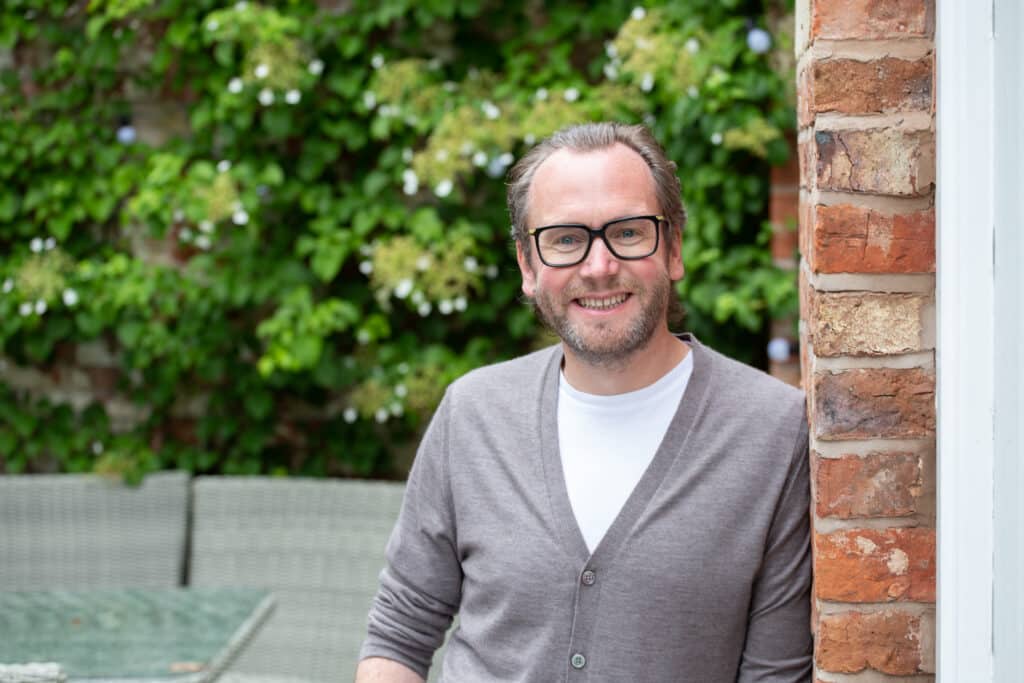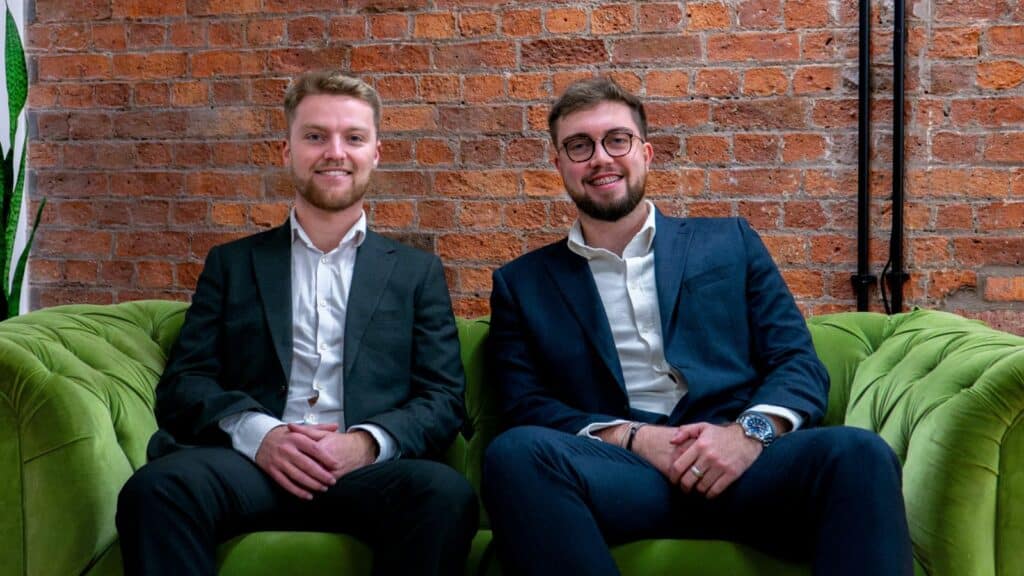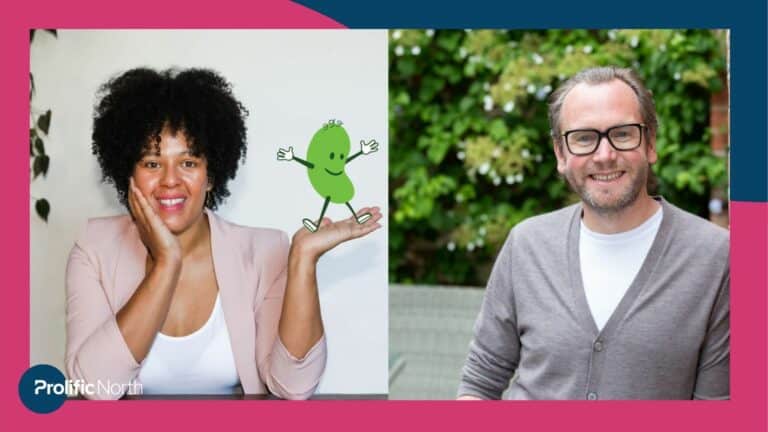Frustrated by the ‘risk averse’ nature of some UK investors, a number of Northern founders appear to be setting their sights across the Atlantic thanks to the temptation of bigger markets, wider talent pools and deeper investor pockets.
Despite Trump’s latest tariff frenzy recently sending shockwaves across the stock markets, is this the start of a ‘Northern brain drain’ overseas or simply a case of savvy entrepreneurs chasing the capital, talent and infrastructure needed to fuel their ambitious visions?
As part of Prolific North’s GRAFT tech series to spotlight the triumphs, tensions and untapped opportunities across the North’s tech ecosystem, we’ve taken a deeper look at why some founders are considering moving to the US.
READ MORE: ‘Why I’m moving to Manchester to scale my AI business’
The US is producing around 20 ‘centaur’ companies a year with revenues of £100m but the UK is trailing behind, explains Matthew Scullion, co-founder and CEO of Matillion, a tech firm dual headquartered between Manchester and Denver in Colorado.
“Our economy is about a sixth of the size of the US, so you’d expect us to be creating three per year and something like one every two years in Manchester. But we’re not, right? We’ve created one in the last 10 years in Manchester, which is ourselves,” he tells Prolific North.
“We’re at £100m revenue, we’ve not yet moved to the US… maybe we should. Maybe we should have done it already. Maybe we will.”

On why some Northern founders may be pondering moves to the US, he believes it’s mainly about the market and skill availability, not just about where the investors are.
“The reason you move to the US is not because it’s where the capital comes from. Money moves very quickly, and to raise it, you can do that on the phone, or you can just buy a plane ticket to New York or San Francisco, or a train ticket to London.
“Matillion does four board meetings a year, two on zoom and two in-person across the UK and US. I don’t need to go and live in San Francisco to facilitate my investor relations.”
READ MORE: How Northern tech is “grafting” its way to the top with global ambitions
But if founders raise all their capital from the US, it does “increase the pressure” for a founding team to relocate.
“It might well be the right thing to do anyway, because that’s where the majority of the market is and where some of the skills are that you need. If you disagree with that and you want to stay in Manchester or the UK, that’s going to be a harder argument to win if your whole board is US-based.
“If our investors are all American, it doesn’t stop us building great companies, but it does increase the chances that they leave. But we’re not yet creating enough of those scaling companies that are going to bump into that problem to worry about it yet…”
While 67.7% of people feel informed about the funding options available to them, 74.7% of UK businesses believe there is still room for improvement in both public and private finance options in their region. That’s according to Barclays Eagle Labs latest Tech in the UK report, published in partnership with Beauhurst.
Anita Frost, founder of children’s entertainment platform Green Bean Studios, couldn’t agree more.

“We recently were approached by a launchpad in Denver and they offered us such a great opportunity. I would love to remain a Northern business that’s founded and invested in here but ultimately, the US is making it more attractive.”
While she believes there is plenty of support for start-ups across the North thanks to R&D grants and the government’s EIS or SEIS schemes, there is “no playing field” for companies that want to grow.
READ MORE: From Pet Sounds to Hollywood Hills – meet the unconventional founder headlining GRAFT
“It’s about us scaling from where we are to move forward, and there isn’t an approach for that in the UK. At pre-seed, investors want sales to be in the millions. How are you going to get a million sales with no investment? It’s silly.
“Yet some will invest two or three million in a tech idea that’s got no sales attached to it. It doesn’t really make sense at all.”
Green Bean Studios recently launched in the US after securing IP in a lengthy two-year process.
With organic sales already flowing in and a better “risk appetite” mentality from investors, she admits moving to the US is something she has considered despite securing a number of grants from the likes of Innovate UK.
“We need a policy change for investment. There’s a lack of investors’ appetite here. Why? Because investing is not attractive, and it’s only attractive in some sectors.”
“I don’t think the landscape, investment wise, is friendly to young founders”
She’s not alone in that view. Harry Panter, the co-founder behind fast-growing student living platform Housr, says the US is where the future of the market is for his business.
But beyond markets, he points to a “big difference” in how investors operate. As a business raising at Series A level, you need to be one of the “biggest performing companies” in the UK with millions in revenue yet over in the US, investors “absolutely understand that businesses will fail” and look at risk differently.
“They look at returns differently,” he says in frustration. “You’re not going to get the next Uber coming out of Manchester until the mindset changes. I don’t think the landscape in Manchester, investment wise, is very friendly to young founders that want to make a billion dollar business.”

The investment landscape in the US is seen as more favorable for some founders, particularly for high-growth, high-risk ventures.
“There are bigger pockets. VCs are truly VCs, and they’re not disguised private equity funds, unlike a number of those here,” adds Panter.
READ MORE: The investors betting big outside London
Ben Davies, marketing director at Praetura Ventures, says it’s a “common claim” that US VCs are more pro risk – but it’s a more complex picture.
“It’s a completely different market. Money is more readily available, but this is reflected in your cost base. The best hires are paid more, the competition can be harsher, marketing is more expensive, and you’re expected to grow faster. Many businesses we’ve backed build in the North and then expand to the US, we should be encouraging founders to grow from the North. As the North’s venture market matures, we will naturally see investors get more comfortable with early-stage risk.“
Varun Monteiro, CEO of Finity, a recruitment back-office platform for agencies and umbrella companies, says it has never been easier to raise and scale from the North: “From fundraising to bootstrapping, securing clients or meetings, everything’s done remotely most of the time so I don’t think where you’re based is a barrier to scaling.”

As an angel investor and non-executive director at a number of fintech businesses, he says the “only reason” more money is being pumped into start-ups in the US is because of its focus on ideas, but founders should “not compare” the ways the US and the UK do business.
“You could raise $50 million straight away with just an idea in the US but in the UK it’s harder, because you need to have an MVP product. You need to prove and demonstrate something before you start even getting seed capital. That’s what I’ve seen.”
“It’s the entrepreneurial ambition that holds us back…”
Although investors in the UK might be ‘risk averse’, it’s not “healthy for that to be an excuse” says Scullion from Matillion.
“Just go and raise money somewhere else, or find one of the UK investors that doesn’t think like that,” he says.
“Matillion raised $250 million in venture capital from my study at home during the pandemic, and it was all raised in America. So being in Manchester isn’t an excuse.
“If you just sit there blaming the rest of the world, then it’s not going to get better. There’s nothing to stop British companies raising in the US. What I hear is people blaming the world for their lack of progress and saying there’s no high quality investors in Manchester. Get on a train, go to London, or go on Zoom.
“It’s the entrepreneurial ambition that holds us back.”
READ MORE: Is a ‘start-up mentality’ in the UK holding back potential billion-dollar businesses in the North?
Emma Cassidy, investment manager at DSW Ventures, says there are plenty of “great funders” across the North but there could be more.
“There is a lot of external investment coming in, whether it be from London or the US, and often that comes with terms of relocating so companies might relocate to the US.
“The challenge is, how do we make sure companies stay in the region to scale, which leads to other companies doing that too, and keeping the workforce in the region even if they leave or exit the business? We need people in the region with that expertise.”
But what about those that have moved from the US to the North? Dr Giovannie Jean-Louis, the founder behind healthtech start-up PROBR, moved to the UK in 2019.
Although the UK is a smaller market, she explains that it’s “much easier” to work in Manchester when it comes to forming and building connections. But she has started eyeing the US.

“For now, we will definitely remain as a Manchester company, and this is where we started, but we are definitely looking at the US. I have tried to speak with investors there, so I am looking to expand.
“The US market is something I would have to explore because I think, for a lot of founders, if they continue to stay in the UK, they are just prolonging a start-up idea that’s never going to go anywhere.”
As a serial entrepreneur and founder of healthtech start-up Thriving AI, serial entrepreneur Shain Khoja also believes there is ‘less risk appetite’ in the UK but firmly believes the North is a great place to build a business.
Through Thriving AI’s platform, the company’s mission is to shift the dial further away from treatment towards prevention by improving quality of care for older adults and supporting professionals with crucial data in real-time.
“There is more appetite for risk in the US. But it’s not all negative, right? There are positives and that’s where I think Manchester, Liverpool, and the North in general, has been really, really more open to discussions and taking the agenda forward.”
For Frost over at Green Bean Studios, she issued a stark warning: founders are now making the “tough decision” of whether the UK can support them – or if they need to “jump ship somewhere else”.










